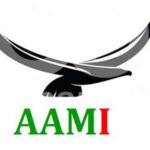Training Objectives:
A major constraint to growth and diversification of agro exports in Africa is the complexity of national and international technical, sanitary and phytosanitary (SPS) conditions, which affect exports to developed markets directly. Ghana has had its fair share of this challenge in recent times following the ban on palm oil export for the use of Sudan III and the EU ban on selected vegetables for the presence of quarantined pest and incomplete documentation. With more than 100,000 international standards and over 1,000 new ones introduced every year, it is a major challenge for developing countries to keep up with the rigorous mandatory and market-generated product standards. This course, Agro-commodity Standards and Certification Systems is a flagship programme developed by the Africa Agribusiness Management Institute (AAMI) and shall introduce participants to:
- Industries as stakeholders of Industry Standards.
- The concept of quality and buyer requirements.
- International and local regulations and norms.
- Sanitary & Phytosanitary Standards (SPS’s) and Private Voluntary Standards (PVS’s).
- Standard conformity & Quality Assurance (Official control & Mandatory Conformity Assessment, Quality Management Systems and Certification systems).
- Quality Infrastructure.
- Customer services & stakeholder engagement in standard industry.
Who can participate in this training?
- Staffs of Public Sector Institutions.
- Executives and members of Development Organizations and NGOs.
- Private Sector Operators (Management Staffs, Quality Assurance Officers etc.).
- Staffs of Private Certification Bodies.
Training methods:
Competency Based Training (CBT) Model
- Class discussions (case study) and presentations.
- Interaction with Experts from Standard Authorities.
- Field visit.
Potential Collaborating Institutions
- GIZ/MOAP/AFC.
- Standard Authorities.
- Solidaridad West Africa.
